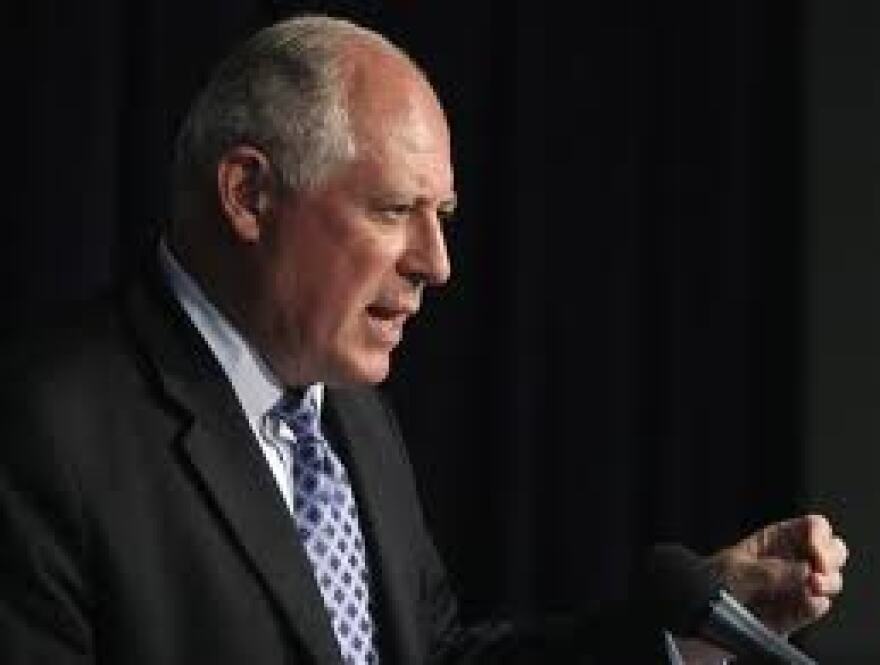... but lawmakers push off a compromise on other pension reforms
Effective July 1, retired state and public university employees will be required to kick in more money for their health insurance, Gov. Pat Quinn's office announced early today.
But legislative leaders who met later today to pursue a compromise on paying retirement costs for downstate and suburban school districts pushed any decision back well beyond that date.
Talks digressed into school funding equality, and leaders say they'll take five weeks to study that before discussing pensions.
House and Senate Republican leaders say making districts pay retirement costs is separate from overall pension reforms. They'd prefer to pass a reform plan that appears to have wide support first, but they're willing to discuss it and want a school funding study.
But Quinn and House Speaker Michael Madigan, D-Chicago, want a comprehensive deal including schools.
The governor's signature on the retiree health insurance bill officially ends the current method of allowing those who retire with at least 20 years of service to have their premiums fully covered by the state. A portion of insurance costs are covered for those who retire with less time on the job under the existing system.
“Those who have faithfully served the state deserve access to quality health care, and insurance costs should be more balanced and based on actual retirement income,” Quinn said in a statement. “We also have a duty to taxpayers to ensure these plans are cost-efficient and put Illinois on the path to fiscal stability.”
This move allows the Quinn administration to set up a new system which will determine health insurance rates based on length of service and pension income. The legislation was passed in the spring as a cost savings for state government.
Quinn's office estimates as many as 90% of retirees currently pay nothing toward health insurance. The governor has stated the costs were too much for the state to bear and called this is a way to preserve the system for retirees.
Quinn's statement says the purpose of the new law is to increase fiscal responsibility by requiring all state retirees to help with the cost of health care based on their ability to pay.
Currently, retired legislators receive free health insurance after four years, retired judges after six years, and retired state and university employees after 20 years of service. The annual cost to taxpayers is nearly $800 million. This law ensures the state will be able to continue offering quality healthcare coverage for retired employees, while making healthcare benefits more affordable for taxpayers.
“This is a year for difficult choices,” said Senate President John Cullerton, D-Chicago, "and passing this bill is the first of many. While I take no joy in the loss of a benefit for hard-working retirees, I am proud of our efforts to stabilize the state budget for now and the future."
Senate Republican Leader Christine Radogno, R-Lemont, called it "a step Illinois must take to right the financial ship."
"Without critical reforms," she added, "the current structure is unsustainable, and taxpayers are on the hook for programs they cannot afford. Senate Bill 1313 is critical to accomplishing the goal of fiscal stability.”
Groups representing public sector employees have argued the government is breaking a promise made to those who have served Illinois.
The law will takes effect July 1, but final decisions on rates will be made following labor negotiations and approval by the Joint Committee on Administrative Rules, the governor's office said.

